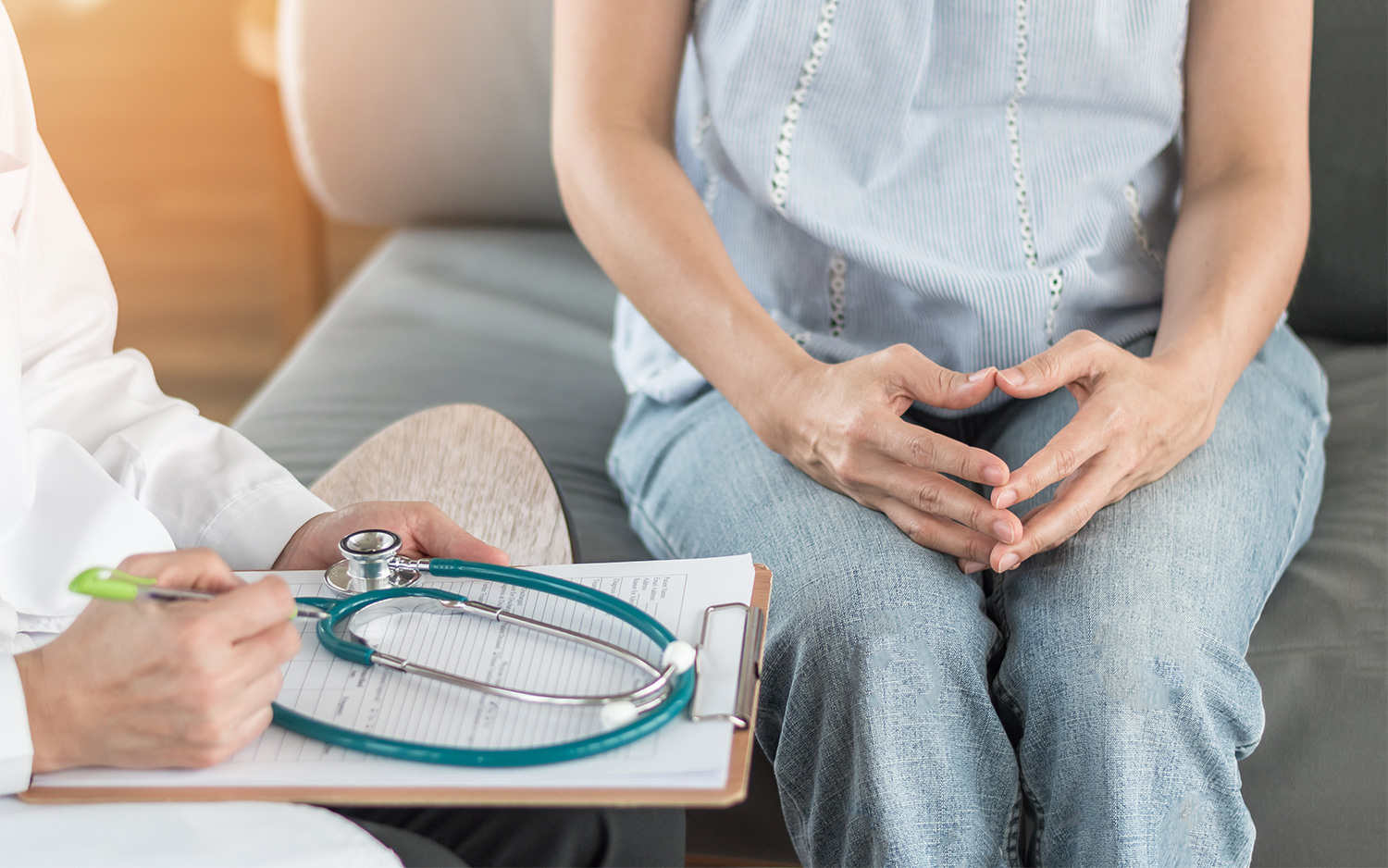7 Odd Things That Raise Your Risk of Cancer (and 1 That Doesn't)
Get the world’s most fascinating discoveries delivered straight to your inbox.
You are now subscribed
Your newsletter sign-up was successful
Want to add more newsletters?

Delivered Daily
Daily Newsletter
Sign up for the latest discoveries, groundbreaking research and fascinating breakthroughs that impact you and the wider world direct to your inbox.

Once a week
Life's Little Mysteries
Feed your curiosity with an exclusive mystery every week, solved with science and delivered direct to your inbox before it's seen anywhere else.

Once a week
How It Works
Sign up to our free science & technology newsletter for your weekly fix of fascinating articles, quick quizzes, amazing images, and more

Delivered daily
Space.com Newsletter
Breaking space news, the latest updates on rocket launches, skywatching events and more!

Once a month
Watch This Space
Sign up to our monthly entertainment newsletter to keep up with all our coverage of the latest sci-fi and space movies, tv shows, games and books.

Once a week
Night Sky This Week
Discover this week's must-see night sky events, moon phases, and stunning astrophotos. Sign up for our skywatching newsletter and explore the universe with us!
Join the club
Get full access to premium articles, exclusive features and a growing list of member rewards.
Strange Connections

We all know the basics about trying to avoid cancer: Don't smoke, slather on the sunscreen. And you can avoid a few other risk factors for cancer by doing things like skipping the red meat, getting vaccinated against HPV and steering clear of air pollution if at all possible.
But some things that may raise people's risk of cancer get a lot less attention. The National Cancer Institute estimates that 1.7 million people in the U.S. will be diagnosed with cancer in 2018 and that about 38 percent of people in the U.S. will get cancer during their lifetimes. Here's a look at seven strange things that may raise your risk of cancer — plus one thing you probably don't need to worry about.
Hot tea

Sipping tea may sound like a healthy way to cope with stress, and drinking green tea may even reduce cancer risk. But make sure to let your cup cool down first. Drinking tea that is extremely hot may increase the risk of cancer of the esophagus, according to a 2018 study done in China.
The study included about 450,000 people, and the researchers found that the people who said they usually drank tea that was "burning hot" and also smoked tobacco and drank alcohol excessively had a five times greater risk of esophageal cancer than people who did none of those three things. The extreme heat of the tea could damage the lining of the esophagus, increasing the damage done by smoke and alcohol, the researchers said.
Sitting still

One way to reduce the risk of cancer is to get moving. Higher levels of physical activity are linked with a reduced risk of some of the most common cancers, including lung, colon and breast cancers. One study found that exercise lowers the risk of getting any type of cancer by 7 percent. It's not clear exactly how exercise lowers people's risk of cancer, the researchers noted.
Yet it seems that many people are unaware of the link between exercise and reduced risk of cancer: A 2018 study found that only 3 percent of U.S. adults surveyed listed that risk reduction as one of the benefits of exercise. Increasing public awareness of the link could be a goal of public health efforts to reduce cancer rates, the researchers said.
Being tall

Taller people are more likely to get cancer than shorter people. A 2018 study found that for every extra 10 centimeters (4 inches) of height, a person's risk of cancer increases by 10 percent. Scientists discovered the link between height and cancer in the 1950s, the researchers said, and although it's not clear exactly how being taller may influence a person's cancer risk, it could be the simple fact that taller people have more cells in their bodies and therefore more cells that could become cancerous, the researchers said.
Get the world’s most fascinating discoveries delivered straight to your inbox.
An earlier study found a 13 percent increase in postmenopausal women's risk of cancer with every extra 4 inches of height. And, interestingly, a 2016 study found a link between longer legs and people's risk of colon cancer. It could be that the level of growth factors in the body play a role in the link, the researchers of the colon cancer study said.
Smoke from the grill

Summer cookouts aren't as innocent as they may look. People who sit close to a grill may absorb an increased amount of chemicals called polycyclic aromatic hydrocarbons (PAHs) through their skin, a 2018 study found. Those chemicals are released by the burning of wood or charcoal and are known to be carcinogens, or cancer-causing agents.
The researchers noted that the level of PAHs that people absorbed through their skin was less than the level they were exposed to by eating the grilled meat. But still, people picked up higher levels of PAHs through their skin than they did by breathing in the smoke. It may help a bit to cover up when grilling, the researchers concluded. People's clothing may lower the level of PAHs that are absorbed through the skin over the short term.
Breast implants

Women with a certain type of breast implant may face an increased risk of a rare type of lymphoma called anaplastic large cell lymphoma (ALCL), a 2018 study found. This type of cancer is not a breast cancer; lymphomas are cancers that arise from the cells of the immune system. Among the women in the study, those who had breast implants that were textured, rather than smooth-surfaced, were at a higher risk of ALCL, the researchers said.
Still, the general risk of this cancer even among women with implants is very low. The researchers calculated that for every 7,000 women who get breast implants, 1 will go on to develop ALCL in the breast by the time she is 75. Although the reason for the link is not exactly clear, it is possible that the implants trigger increased inflammation in the breast tissue, which could lead to cancer over time, the researchers said.
Alcohol

Raising a glass and toasting to good health may not be a great idea. Researchers estimate that 5 percent of annual new cancer cases worldwide and 6 percent of yearly cancer deaths are directly due to drinking alcohol, according to a 2018 statement from the cancer doctors' group, the American Society of Clinical Oncology. Alcohol is linked to increased risks of breast, colorectal, esophageal and liver cancers, as well as cancers of the mouth and throat. And although heavier drinking is generally linked with a higher cancer risk, research shows that drinking even light or moderate amounts of alcohol may increase people's risk of cancer.
Researchers recently found evidence supporting one idea for how alcohol contributes to cancer risk. A 2018 study in mice found that the breakdown of alcohol in the body may release a chemical that damages the DNA of the stem cells of the blood, which could lead to cancer.
Too much weight

Having a higher body weight may increase the risk of more than a dozen types of cancer, a 2017 study found. People in the study who were overweight or obese faced nearly double the risk of cancers of the esophagus, stomach, liver and kidney compared with people who were in the normal weight range.
People who are overweight or obese may harbor higher levels levels of inflammation, thus increasing their cancer risk, the report said. Or, higher levels of hormones that are linked to cell growth may be behind the increased risk, the researchers said.
A 2017 study found that people who maintained a healthy lifestyle, including a lower body weight, had a lower risk of cancer than those with a less healthy lifestyle.
1 thing that probably doesn't cause cancer

Still, if it seems that everywhere you turn, you find something that may cause cancer, take comfort in this: Research suggests there's no link between the electromagnetic signals from cellphones and people's risk of cancer.
In a 10-year study published in 2018, researchers looked at the effects of very high levels of radio-frequency radiation on cancer rates in lab rats. They concluded that there is no evidence that the levels of radio-frequency radiation that people are exposed to when they use cellphones are harmful to human health.

 Live Science Plus
Live Science Plus










